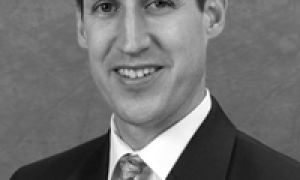In 1915 Harvard University established one of the first ROTC programs in the country, but in 1969 the faculty voted 207-125 to deny course credit for ROTC and revoke faculty status of ROTC instructors. Nearly four decades later, the animosity of the Ivy League towards the military remains strong. This is taken by many as a symbol of a modern gap between America's elites and her troops.
Numerous Princeton, Yale and Harvard graduates signed up for service in World War II, and many universities offered "war degrees" for undergraduates in a hurry. In 2004, just nine members of Princeton's class of 2004 entered the military, the highest in the Ivy League, according to Kathy Roth-Douquet and Frank Schaeffer in their book, AWOL: The Unexcused Absence of America's Upper Classes from Military Service-and How It Hurts Our Country.
The book is a semiautobiographical journey of two self-described liberal intellectuals who experienced an emotional awakening to the service, duty and patriotism of America's soldiers. Their story is powerful and eloquent, and at the crux is a frustration that the sacrifices of today's soldiers are not being shared, or hardly felt, by others in society.
They know their material-both authors have family in harm's way (one is a Marine's wife, the other is a Marine's father). Yet it must be said that, despite their critical tack, the authors remain blinded by their own elitism. This year's graduates of West Point and Annapolis couldn't care less that a trifling of Ivy Leaguers are in uniform, nor do they think of their own institutions as intellectually inferior. The authors, to put it bluntly, have confused what it means to be an elite.
The strongest theme in the book is that the American mainstream has lost touch with a sense of duty. We all understand that fighting terrorism will entail sacrifices, yet there is a widespread resistance among many Americans to allow military recruiting in their neighborhoods. There are active campaigns to block recruiters from schools in Cambridge, Mass., and San Francisco, Calif., as well as lawsuits to bar students from ever hearing from recruiters. Roth-Douquet and Schaeffer mockingly ask, "So not being asked to even consider service is now defended as some sort of new civil right?" There is a fundamental assumption that military service, and by extension raw duty, is beneath some people.
Half a century ago, the mainstream public held self-sacrifice and duty to nation as unquestioned virtues. Over time, those virtues have seemingly shriveled into a military subculture. David Lipsky identified this tension in describing the four-year experience of the class of 2004 at West Point in his book Absolutely American: Four Years at West Point. Lipsky's book is a valuable companion to AWOL, with insights into what motivates some of the nation's most promising teenagers to "waste" their potential on a military career.
Terry Moran of ABC News recently said he senses "a deep antimilitary bias in the media." The authors agree, noting that words such as "honor, valor, heroism, selflessness [and] loyalty" are virtually absent from modern reporting.
From all this emerges a growing divide between the troops and ... who, exactly? The authors argue the gap is between elites and the military. By elites, they mean to say upper-class families. They reason, inductively, that a few antirecruiting drives in some wealthy neighborhoods mean that all wealthy neighborhoods are homogenous and united against letting their children volunteer.
This deeply flawed logic is woven into the fabric of every chapter and almost every page of AWOL: the assertion that America's upper classes are not serving in uniform. "One class of Americans has been absent," write Roth-Douquet and Schaeffer, yet they offer almost no facts or statistics other than passing reference. The wars in Afghanistan and Iraq had just begun as the book was being written. At the time the myth of the underprivileged soldier was rampant in the media, and some members of Congress were calling for a draft. But recruiting data said otherwise. I published a study in 2006 showing that the average enlistee (not to mention officer) is from a wealthier neighborhood than the average civilian. Actually, the only class that is lowering its participation in the military is the poor. The percentage of recruits from the poorest fifth of U.S. neighborhoods declined from 18 percent in 1999 to 13.7 percent in 2005.
With such data available, the book's conclusion that the all-volunteer force should be replaced with conscription looks irresponsible. Logically, using volunteers instead of draftees implies a higher quality recruit.
What's really at issue is not a divide between the military and rich Americans, or smart Americans, or any other demographic category. There is a gap, but it is a political one.
But the authors pretend otherwise. For example, they write in the introduction, "This is not a Democrat-versus-Republican issue." In a later chapter, they write that "both sides of the aisle are contributing to the alienation of the military." The sad fact is that the liberal elite has lost touch with the military.
AWOL is a book with one deep and tragic flaw. Class, race, education, income-these are not dividing lines in uniform. Rather, those divisions among Americans have been largely resolved by the meritocracy and solidarity prevalent in the armed forces. Roth-Douquet and Schaeffer are at their best when they reflect that many African-Americans achieved the rank of general in the military before even one had achieved the rank of editor at the New York Times. If merit and equal opportunity were the core values of self-proclaimed elites, America could indeed be a better country.
Tim Kane, Ph.D., is an economist at The Heritage Foundation. He is a graduate of the U.S. Air Force Academy and a former Air Force intelligence officer.
First appeared in the Army Magazine



